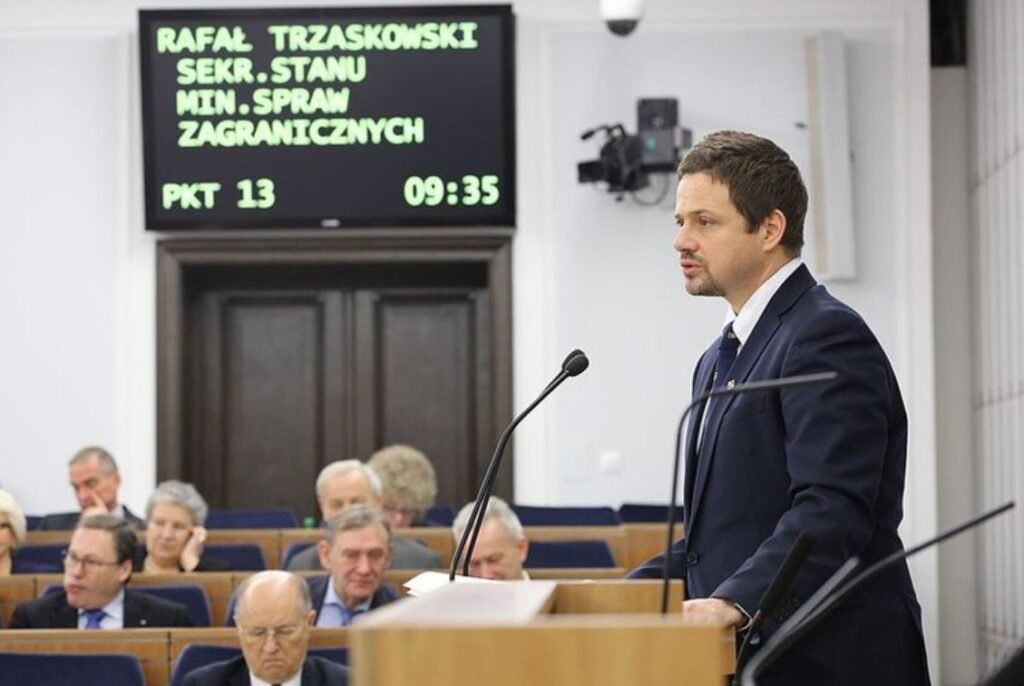In a bold move that has ignited a firestorm of public discourse, Warsaw Mayor Rafał Trzaskowski has enacted a policy to remove religious symbols from the city hall. This decision has reverberated through the streets of Poland, sparking widespread protests and a heated debate on the role of religion in public life.
The Stirring of Public Sentiment
The mayor’s decree has not gone unnoticed, with citizens from all walks of life taking to the streets in protest. The sight of passionate demonstrators, fervently waving banners and voicing their dissent, has become a common tableau in the city’s public squares. The outcry is a testament to the deep-seated reverence for religious traditions in Poland, a nation where faith and public identity are inextricably linked.

The controversy has also drawn the attention of political figures, most notably opposition PiS leader Jarosław Kaczyński. He has lambasted the European People’s Party (EPP), accusing them of orchestrating an assault on the very fabric of faith. His words echo the sentiments of many who feel that their spiritual heritage is under siege.
Amidst the uproar, there are those who stand by the mayor’s decision, viewing it as a necessary step towards a more secular society. They argue that the presence of religious symbols in government buildings blurs the line between church and state, a boundary that should remain clear in a modern, pluralistic society.
A City Divided
The ban has cleaved Warsaw into two camps: those who champion the secular ethos and those who see the move as an affront to Poland’s Christian heritage. The debate has spilled over into the media, with op-eds and think pieces dissecting the implications of the mayor’s policy. It has become a topic of dinner table conversations, with families and friends finding themselves on opposite sides of the divide.
For many, the removal of religious symbols represents a broader cultural shift, one that challenges the status quo and questions the role of religion in the public sphere. It is a conversation that extends beyond the borders of Warsaw, resonating with communities across Europe grappling with similar issues.
The Road Ahead
As the dust settles, the future of religious symbols in Warsaw’s city hall remains uncertain. The mayor’s decision has opened a Pandora’s box of legal, ethical, and cultural questions that demand answers. Will other cities follow suit, or will Warsaw remain an outlier in the struggle between secularism and tradition?
What is clear is that the ban has sparked a national conversation about identity, values, and the nature of public space. It is a dialogue that is likely to continue, shaping the contours of Polish society for years to come.





















